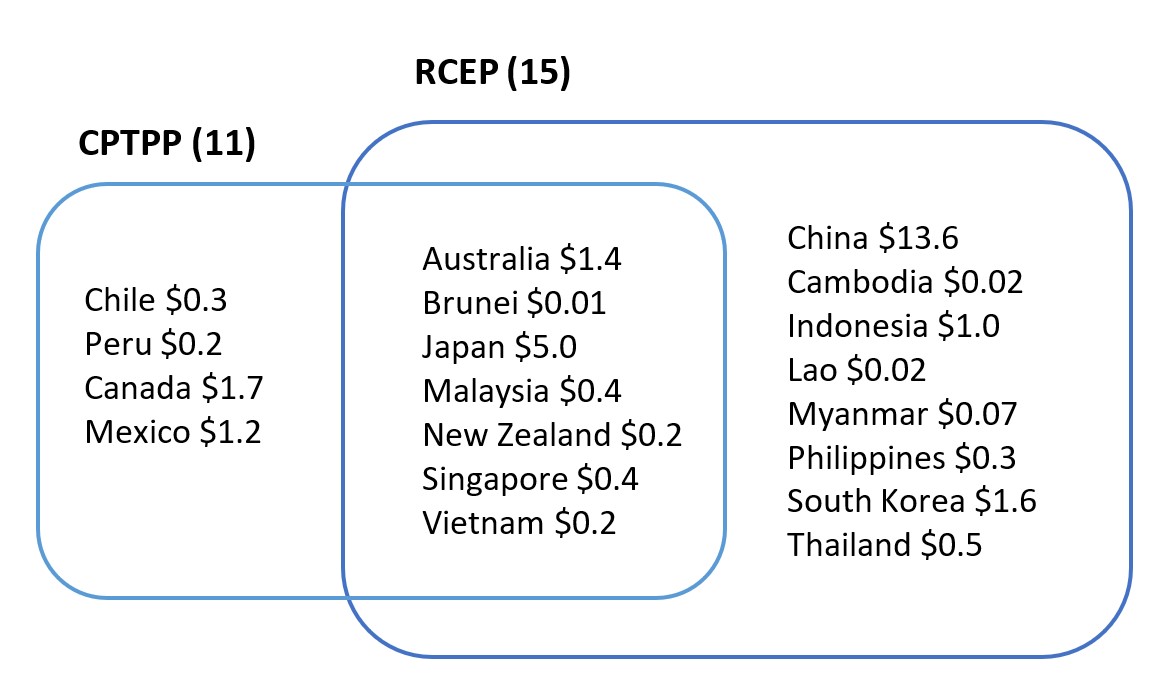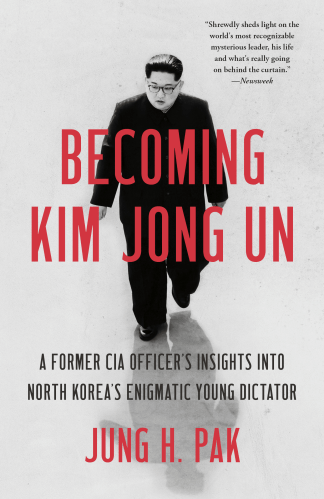Whether your preferred metaphor is a roller coaster or an outright dumpster fire, the year 2020 has been an outlier, to put it mildly. A few big stories dominated the news cycle, and our lives — the COVID-19 pandemic, the U.S. election, widespread protests over racial justice issues — while many others carried on in their shadow, sometimes with explosive effects and sometimes with underappreciated ones.
Many people are eager to pack memories from this year onto a funeral pyre and cast it off to sea. Before we do, a quick recap of how the world changed in 2020 can help prepare us for what may come. As always, Brookings foreign policy and national security experts illuminated what this year’s big events meant, as well as what they portend. Both are of utmost importance as new leadership prepares to take the reins in Washington, with the world watching.
1
- January 3
- Iranian commander Qassem Soleimani is assassinated in Iraq by the United States.
Suzanne Maloney argued in the Washington Post that the Trump administration “escalated simmering tensions with Tehran from an economic onslaught to an act of war.” While the killing was “likely to instigate a dangerous and unpredictable Iranian backlash,” she cautioned, “Iranian leaders are well-practiced at calibrating retaliation around their real interests, which ultimately concern the survival of their regime.” Other experts highlighted Soleimani’s gruesome track record, the potential for region-wide blowback, Saudi Arabia’s reaction, and more.
Meanwhile, Brookings scholars debated the U.S. presence and role in the Middle East.
2
- February 29
- Negotiators from the United States and the Taliban sign a deal laying out a plan for ending the U.S. military presence in Afghanistan and opening a path for intra-Afghan talks.
John R. Allen expressed skepticism, writing: “The Taliban are untrustworthy; their doctrine is irreconcilable with modernity and the rights of women; and in practice, they’re incapable of summoning the necessary internal controls and organizational discipline needed to implement a far-flung agreement like this. The so-called ‘Agreement for Bringing Peace to Afghanistan’ will not only not be honored by the Taliban, it will also not bring peace.” Other experts worried about the lack of input from Afghanistan’s government, identified possible reasons for cautious optimism, outlined key battlefield dynamics, and analyzed the prospects for lasting peace.
Separately, Michael O’Hanlon asked Secretary of Defense Mark Esper about the U.S. conundrums in Afghanistan during a Brookings event. Watch the exchange here:
3
- March 11
- The World Health Organization declares the novel coronavirus (COVID-19) outbreak a pandemic.
After the virus originated in China, experts studied Beijing’s “mask diplomacy,” and stressed the dangers posed by the inability of the United States and China to coordinate. In Europe, Italy was hardest hit at first, Germany quickly applied strict lockdown measures, and the United Kingdom largely bungled its early response. In East Asia, the pandemic had dire effects on Japan’s economy and others, and North and South Korea took starkly different approaches. In Southeast Asia, the pandemic intersected with the U.S.-China rivalry. In the Middle East, where Iran was an early epicenter, experts analyzed risks of public unrest and economic instability; in Pakistan, religious conservatives played a key role. Latin America would become a hotspot later, with Mexico adopting a “feeble” response. Across Africa, the economic impacts of COVID-19 may largely outlast the health impacts, as experts discussed.
 Experts studied the pandemic’s effects on the U.S. military, something Chairman of the Joint Chiefs of Staff Mark Milley addressed during remarks at Brookings. The pandemic opened new space for criminal groups and illicit economies, and exposed the dangers of wildlife trafficking. It revealed the limits of populism, had dramatic impacts on energy markets, and raised new questions about the future of climate action.
Experts studied the pandemic’s effects on the U.S. military, something Chairman of the Joint Chiefs of Staff Mark Milley addressed during remarks at Brookings. The pandemic opened new space for criminal groups and illicit economies, and exposed the dangers of wildlife trafficking. It revealed the limits of populism, had dramatic impacts on energy markets, and raised new questions about the future of climate action.While we are far from out of the woods, experts from across Brookings also started to think about what reopening efforts could look like around the world.
4
- May 25
- George Floyd is killed, setting off protests across the United States and the world, and white supremacist extremist groups took advantage of the unrest.
“White supremacists are gleeful as police violence and the resulting rioting tear apart cities,” wrote Daniel Byman, who also explored the question of when to label certain groups as “terrorists” — and when not to. Tamara Cofman Wittes argued that it’s still possible to promote human rights abroad when they’re under attack in the United States, and highlighted civil society creativity around the world amidst lockdown restrictions.
5
- June 16
- Twenty Indian troops are killed in a border skirmish between India and China in a disputed Himalayan border area.
 The clash “demonstrated that despite New Delhi’s and Beijing’s cooperative efforts, their relationship is a fundamentally — and increasingly — competitive one that can spill over into conflict,” wrote Tanvi Madan in Foreign Affairs. India and the United States, she added, will likely become closer as a result. In a new book, Madan took a long view of the three-party relationship and its future prospects.
The clash “demonstrated that despite New Delhi’s and Beijing’s cooperative efforts, their relationship is a fundamentally — and increasingly — competitive one that can spill over into conflict,” wrote Tanvi Madan in Foreign Affairs. India and the United States, she added, will likely become closer as a result. In a new book, Madan took a long view of the three-party relationship and its future prospects.For a deep-dive on China’s ambitions in Asia and around the world, check out our Global China project.
6
- August 13
- Israel, the United Arab Emirates (UAE), and the United States strike a deal for Israel-UAE diplomatic normalization. By the end of 2020, similar deals will have been brokered with Bahrain, Sudan, and Morocco.
Natan Sachs argued that “normalization between Israel and the UAE is an excellent thing, in and of itself,” but that the context – Israel’s annexation plans, and the exclusion of Palestinians from such deals – is key. Experts also analyzed what the breakthrough meant for other regional powers and for the Palestinian people, examined the implications for Israeli Prime Minister Benjamin Netanyahu domestically, criticized the “cynical” logic of the deal, and highlighted the role of U.S. domestic politics. When Sudan and Israel normalized ties two months later, Zach Vertin explained the connection to Sudan’s status on the State Department’s list of state sponsors of terrorism. In the case of Morocco, the partial normalization agreement also meant U.S. recognition of Moroccan sovereignty over Western Sahara.
7
- August 28
- Japanese Prime Minister Shinzo Abe announces his decision to resign for health reasons.
“When it comes to the use of economic engagement as a diplomatic tool, Japan — not the United States — is China’s peer competitor,” wrote Mireya Solís in Foreign Affairs in the wake of Abe’s sudden resignation. She went on: “It might be tempting to yet again dismiss Japan’s potential. But the country’s strategic choices are by no means foreordained, and they will affect not only its own future but also the course of the raging great-power competition now playing out between China and the United States.”
Listen to Solís discuss Japan’s leadership transition:
8
- November 3
- A much-anticipated national election takes place in the United States, with Joe Biden later declared the winner of the presidential contest. The Democrats narrowly kept the House, while Senate control hinges on the Georgia runoff in January.
Before the vote, Thomas Wright contended that the election put “the fundamental principles of U.S. leadership to the test” and detailed the stakes, having studied both Trump’s and Biden’s foreign policy approaches. Via Brookings’s Policy 2020 initiative, experts provided answers to common voter questions, such as: What is the Trump administration’s track record on the environment? Who are America’s allies and are they paying their fair share of defense? Is U.S. defense spending too high or too low? And scholars from across Brookings Foreign Policy listed concrete, meaningful policy actions the next president should take, regardless of the election outcome.
After Joe Biden was declared the winner, scholars convened to discuss what was to come, with many more weighing in to outline questions the Biden administration should expect to hear from counterparts around the world. Recognizing the centrality of China in any American foreign policy decisionmaking, scholars offered in-depth recommendations on trade relations, security issues, international institutions, and more.
9
- November 4
- Ethiopian Prime Minister Abiy Ahmed orders a military offensive against the northern region of Tigray, after accusing the region’s ruling party of attacking a government defense post. Concerns develop that civil war is imminent.
As Zach Vertin assessed: “While the past weeks have seen no shortage of finger-pointing between these bitter rivals, the truth is that both sides are to blame for the conflict now imperiling Ethiopia.” The developments imperiled the already fragile security situation in neighboring Somalia, with Vanda Felbab-Brown writing that the developments “hurt counterinsurgency efforts against the potent jihadi terrorist group al-Shabab and exacerbate Somalia’s existing tensions between its capital and regions.” In a webinar on the crisis, Jeff Feltman called Ethiopia “a tragic example of why conflict prevention is so hard.”
10
- November 15
- Fifteen countries sign the Regional Comprehensive Economic Partnership (RCEP), arguably the largest free trade agreement in history. Meanwhile, the medium-term effects of the U.S.-China trade war become clear.
As Peter Petri and Michael Plummer estimated, “RCEP will connect about 30% of the world’s people and output, [and] could add $209 billion annually to world incomes, and $500 billion to world trade by 2030.” The United States, meanwhile, remains outside this economically and geopolitically significant agreement
Figure: Members of RCEP and CPTPP
(Numbers present 2018 GDP in trillions of U.S. dollars)

Instead, as Ryan Hass and Abraham Denmark highlighted, the United States has experienced “more pain than gain” in its trade war with China: “The ultimate results of the phase one trade deal between China and the United States — and the trade war that preceded it — have significantly hurt the American economy without solving the underlying economic concerns that the trade war was meant to resolve.” Separately, David Dollar dove deep into the economic challenges China faces as it continues to rise.
Finally, since most of us will remain largely stuck inside for at least a few more months, check out Brookings Foreign Policy’s recommendations for books to read (with many more excellent finds coming next year), as well as movies and TV shows to watch. Stay safe out there, and see you in 2021.
-
Acknowledgements and disclosures
Rachel Slattery performed graphic design for this post.





Commentary
Recapping 10 of the biggest foreign policy and national security stories of 2020
December 22, 2020